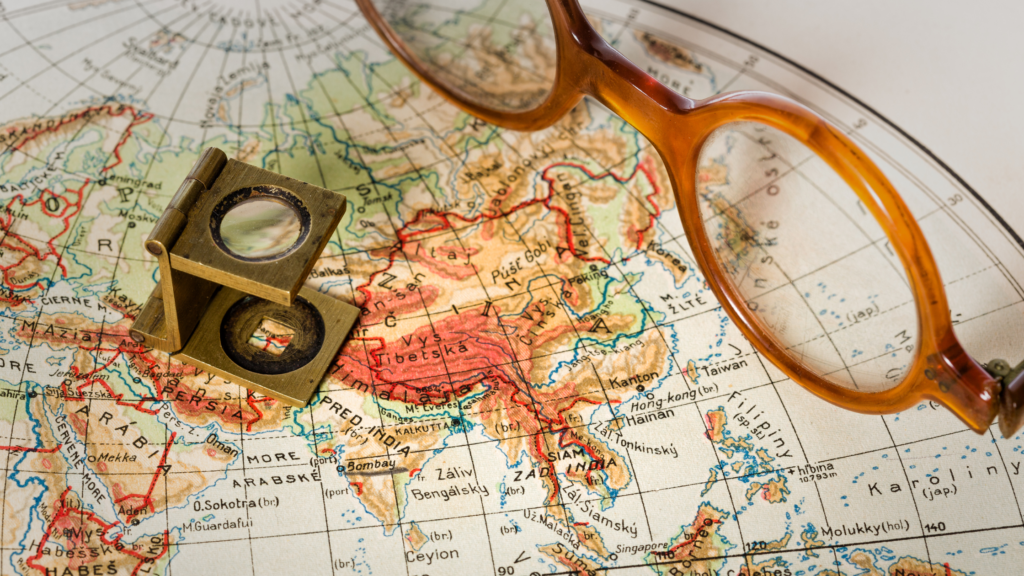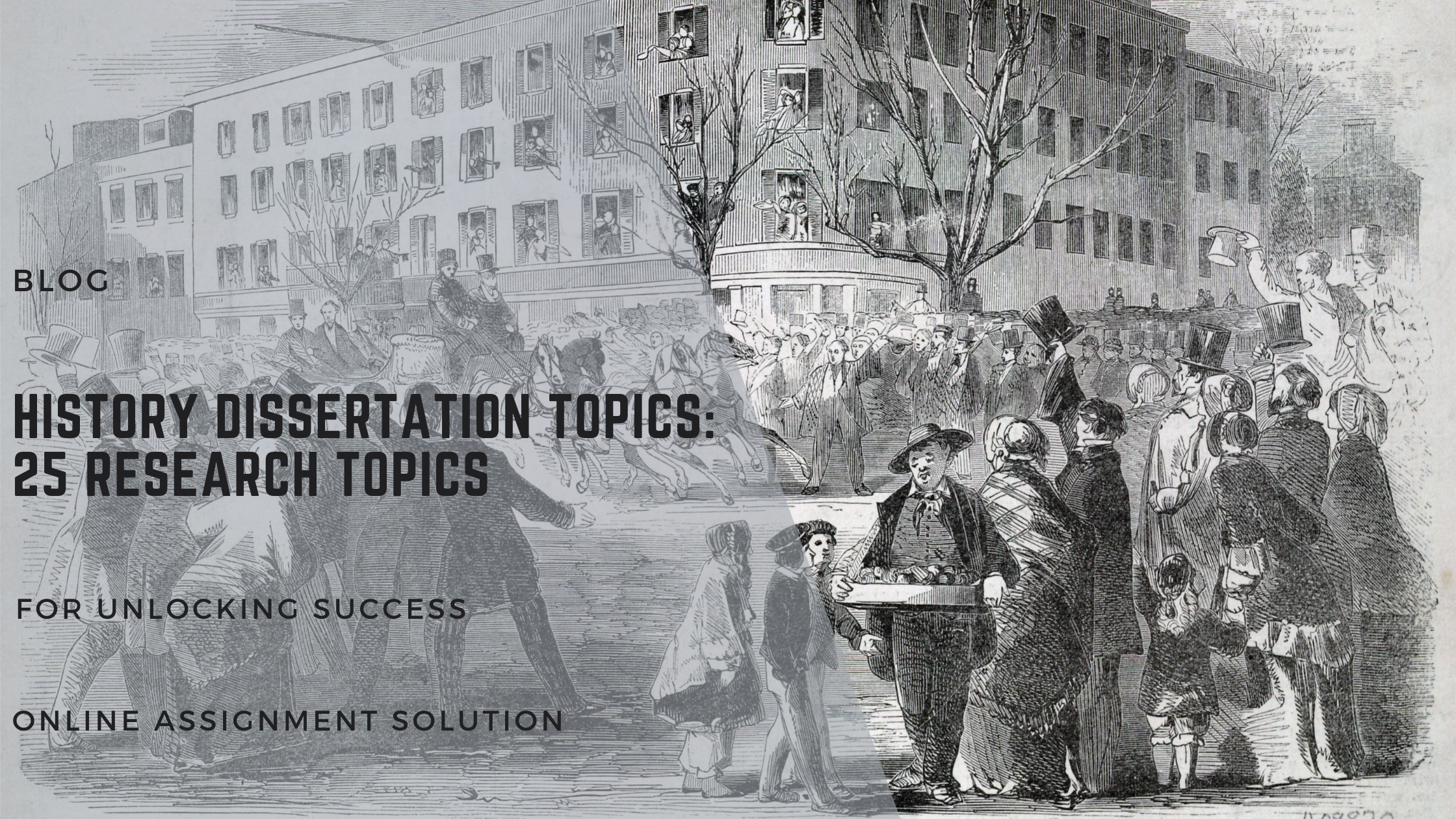Introduction
Welcome to the world of historical exploration! Writing a history dissertation is no small feat; it requires a deep understanding of historical contexts, meticulous research, and the ability to present compelling arguments. Choosing the right topic can significantly impact your dissertation’s success and your passion for the subject matter. In this article, we will present a diverse range of history dissertation topics that cater to various interests and academic inclinations.
History Dissertation Topics: Unearthing Fascinating Narratives
The Fall of the Roman Empire: A Comprehensive Analysis
Dive into the events that led to the decline and eventual collapse of one of history’s most influential empires. Analyze political, economic, and social factors that contributed to the fall of Rome and its lasting impact on European history.
The Renaissance: Rebirth of Knowledge and Culture
Explore the cultural awakening that swept across Europe during the Renaissance. Examine the artistic, literary, and scientific advancements that shaped the modern world.
The French Revolution: Unraveling the Reign of Terror
Delve into the French Revolution, a tumultuous period that reshaped the course of European history. Analyze the causes, consequences, and ideological underpinnings of this pivotal revolution.
Investigate the far-reaching effects of the Industrial Revolution on societies and economies worldwide. Explore technological innovations, urbanization, and the emergence of the working class.
Women’s Suffrage Movement: Pioneering Equality
Trace the journey of women’s suffrage and the struggle for gender equality. Analyze key figures, movements, and legislative milestones that paved the way for women’s rights.
The Civil Rights Movement: Fighting for Freedom
Uncover the courageous efforts and sacrifices made during the Civil Rights Movement. Examine the impact of leaders like Martin Luther King Jr. and Rosa Parks in shaping a more equitable society.
The World Wars: Global Conflicts and their Aftermath
Study the causes and consequences of World War I and World War II, understanding how these global conflicts reshaped the political and social landscape of the 20th century.
The Cold War: Superpower Rivalry and Nuclear Tensions
Explore the geopolitical tensions and ideological clashes between the United States and the Soviet Union during the Cold War. Analyze the arms race, proxy wars, and the eventual collapse of the Soviet Union.
The Age of Exploration: Navigating New Worlds
Embark on a journey with early explorers as they navigated uncharted waters, leading to the discovery of new lands and cultures that shaped the course of history.
The Harlem Renaissance: Celebrating African-American Culture
Celebrate the artistic and cultural movement known as the Harlem Renaissance, which fostered African-American achievements in literature, music, and art during the early 20th century.
The Black Death: Catastrophe and Societal Shifts
Examine the devastating impact of the Black Death in medieval Europe, analyzing its consequences on demographics, economies, and cultural beliefs.
The Holocaust: Remembering the Tragedy
Delve into the Holocaust, one of the darkest chapters in human history, understanding the events that unfolded and the lessons we can learn from this horrific genocide.
The Space Race: Conquering the Final Frontier
Trace the competition between the United States and the Soviet Union to explore space, culminating in the moon landing and advancements in space technology.
The Age of Enlightenment: Pursuit of Reason and Knowledge
Discover the Age of Enlightenment, a period of intellectual curiosity and skepticism that challenged traditional beliefs and laid the groundwork for modern societies.
The American Revolution: Birth of a Nation
Explore the events that led to the American Revolution and the establishment of the United States as an independent nation.
The Renaissance of Chinese Civilization
Study the Chinese Renaissance, also known as the “Chinese Cultural Flourishing,” and its impact on arts, literature, and governance during the Tang Dynasty.
The Partition of India: Fragmented Independence
Examine the partition of India in 1947 and the birth of Pakistan, understanding the complex political and social ramifications of this historic event.
The Age of Imperialism: Global Expansion and Conquest
Investigate the era of imperialism, where European powers expanded their empires across Africa, Asia, and the Americas, leaving a lasting legacy on global politics and cultures.
The Mayan Civilization: Mysteries of an Ancient Culture
Unravel the mysteries of the Mayan civilization, studying their advanced knowledge of astronomy, mathematics, and architecture.
The Crusades: Clash of Civilizations
Trace the historical context and impact of the Crusades, a series of religiously motivated military campaigns between Christians and Muslims during the Middle Ages.
The Russian Revolution: Tsarist Collapse and Rise of Communism
Examine the events that led to the downfall of the Romanov dynasty and the rise of the Soviet Union during the Russian Revolution.
The Golden Age of Islam: Intellectual and Cultural Blossoming
Explore the Golden Age of Islam, a period marked by significant advancements in science, mathematics, medicine, and philosophy.
The Trail of Tears: Forced Removal of Native Americans
Analyze the forced removal of Native American tribes from their ancestral lands, known as the Trail of Tears, and its profound impact on indigenous communities.
The Vietnam War: Lessons Learned from Conflict
Study the Vietnam War and its lasting impact on global politics, foreign policy, and lessons learned from this controversial military engagement.

Frequently Asked Questions (FAQs)
Q: How do I choose the right history dissertation topic?
A: To choose the perfect history dissertation topic, consider your interests, consult with your advisor, and select a subject that allows for in-depth research and analysis.
Q: Can I focus on a lesser-known historical event for my dissertation?
A: Absolutely! Exploring lesser-known historical events can bring fresh perspectives and contribute to the field of historical research.
Q: How do I conduct research for my history dissertation?
A: Conduct thorough research using academic databases, primary sources, archives, and reputable historical texts.
Q: Is it essential to visit historical sites for my dissertation?
A: While visiting historical sites can provide valuable insights, it’s not a prerequisite. Extensive research can be conducted remotely.
Q: How should I structure my history dissertation?
A: Your history dissertation should typically include an introduction, literature review, methodology, analysis, conclusion, and bibliography.
Q: Can I combine history with other disciplines in my dissertation?
A: Yes, interdisciplinary approaches can add depth to your research. Consider integrating history with fields like sociology, politics, or economics.
Conclusion
History dissertation topics offer an exciting opportunity to delve into the past, unlocking stories that have shaped civilizations, cultures, and societies. Whether you choose a well-known event or explore lesser-known narratives, your research can shed light on historical complexities and inspire a deeper understanding of the world we live in. Embrace your passion for history, and let your academic journey be a captivating exploration of human history and its everlasting impact.
Online Assignment Solution can be a valuable resource for English students seeking assistance with writing their dissertations. Firstly, this platform offers access to a pool of highly qualified and experienced academic writers specializing in English studies. These experts possess in-depth knowledge of the subject matter, research methodologies, and academic writing conventions specific to dissertations. We can provide valuable guidance and support throughout the writing process, from selecting a relevant topic to structuring the dissertation effectively. With our expertise, we can help students develop strong thesis statements, conduct comprehensive literature reviews, analyse findings, and craft compelling arguments. The writers can also assist in refining the language and style of the dissertation, ensuring clarity, coherence, and adherence to academic standards

Secondly, Online Assignment Solution offers the convenience of personalised and flexible services. Students can communicate with their assigned writers, discuss their requirements, and provide specific guidelines or materials related to their dissertation. This personalised approach allows for tailored assistance, ensuring that the dissertation reflects the student’s unique research interests and writing style. Additionally, this platform often offers revisions and editing services, allowing students to receive feedback and make necessary improvements to their drafts. By availing our services, students can save time and focus on other aspects of their academic journey while receiving professional guidance to enhance the quality of their English dissertations.
Overall, Online Assignment Solution serves as a valuable support system for English students working on their dissertations. We provide access to expert writers, personalised assistance, and convenient services, enabling students to overcome challenges and produce well-written, high-quality dissertations that showcase their knowledge and academic abilities.

